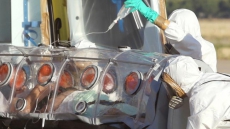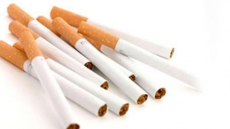Call it love handles, the spare tyre or the middle age spread - a lot of people struggle to do away with their extra fat around waistline. Thanks to a new way to burn energy from food, you could soon be able to do so with some “stress”.
The scientists have discovered a new signalling molecule capable of activating brown fat cells called adenosine and burn energy from food.
The body's own adenosine which is typically released during stress activates brown fat and “browns” white fat, the findings showed.
"Not all fat is equal. Humans have two different types of fat: undesirable white fat cells which form bothersome 'love handles' as well as brown fat cells which act like a desirable heater to convert excess energy into heat,” explained professor Alexander Pfeifer from University of Bonn in Germany.
“If we are able to activate brown fat cells or to convert white fat cells into brown ones, it might be possible to simply melt excess fat away,” he noted.
Crucial for transmitting the adenosine signal is the adenosine receptor A2A.
"If adenosine binds to this receptor in brown fat cells, fat burning is significantly stimulated," Thorsten Gnad from Pfeifer's team explained.
It was previously thought not possible for adenosine to activate brown fat.
However, the researchers were not mislead by these previous findings.
In contrast, using brown fat cells removed from humans during surgery, the scientists investigated the signaling pathway for fat activation using adenosine.
The results showed that rats and hamsters react differently than humans in this regard.
"On the other hand, brown fat in mice behaves just as in humans," Pfeifer commented.
The findings appeared in the journal Nature.





